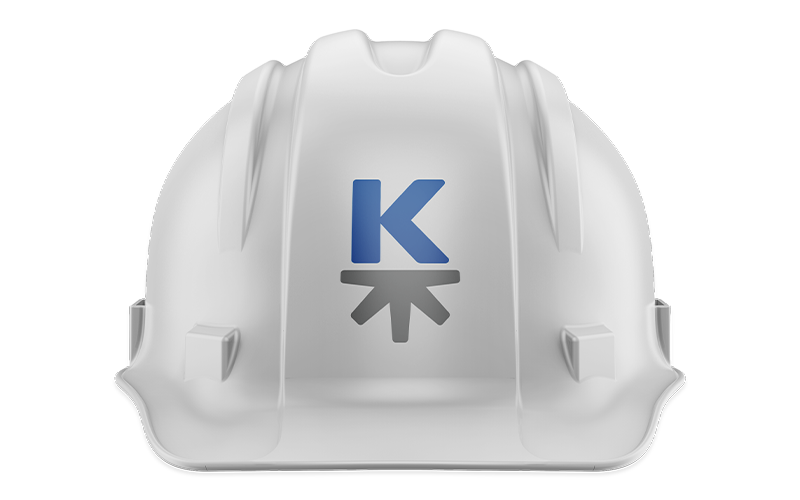Industrial Marketing vs. Consumer Marketing: What’s the Difference?

Let’s be honest. When it comes to marketing, many industrial companies let it fall by the wayside. If there’s time or money left in the budget, an advertisement might be placed in a trade journal or in a regional newspaper. For many industrial companies, marketing simply isn’t worth the time or effort.
But herein lies the issue. What many companies may think of as marketing (and what they’re seeing little return on) isn’t the kind of marketing they should be implementing. Industrial marketing is an entirely different beast compared to its more popular and more recognized counterpart, consumer marketing.
While consumer marketing deals with product markets (think finished goods that are largely bought by individuals, like shoes, clothing, books, etc.) industrial marketing deals with factor markets, or highly specialized products and services for select consumers (think labor, machinery or unfinished products (1).)
Of course, the end goal is still the same: gain qualified leads that turn into quality customers. But the way to get those leads needs to be approached entirely differently. Here are the main differences between industrial marketing and consumer marketing:
1. Products are highly specialised.
In consumer marketing, products are often simple and can be mass marketed. On the other hand, in industrial marketing, products are very niche-specific and require specialized knowledge on the part of both the buyer and seller.
When it comes to marketing your Lithium-ion batteries that work specifically with medical machinery, your target audience certainly isn’t going to be everyone and anyone.
By creating ebooks, webinars, blog posts and other materials about the problems your target audience face, industrial companies can help educate their buyers during the critical research and analysis stage of the industrial buy cycle (a stage which is nearly nonexistent in the consumer buying process.)
2. Industrial buyers are professionals.
While consumer market buyers can be swayed by social or psychological motives, industrial market buyers know exactly what they want and are often a part of a buying team (while an individual may purchase a product, the decision may be a highly scrutinized team decision.)
Buyers are looking for benefits (often hard ROI numbers) and how this purchase will help them meet their goals. Through case studies, white papers and other factual content marketing material, industrial companies can differentiate themselves and provide the reliable information that industrial buyers seek to analyze before making decisions.
3. There’s an emphasis on partnerships vs. advertising.
In consumer marketing you may be able to convince a buyer to buy a pair of socks based on their impulses. In the industrial market, gaining a buyer requires a longer timeline (sometimes months or years) and a formation of trust and expertise. Industrial marketing focuses on “lead nurturing,” building a relationship between you and the buyer (2). Based on the products the industrial company sells, a sale can result in a partnership that lasts for years.
As can be deduced from above, the industrial buying process is vastly different from the typical consumer buying process. The industrial market is comprised of products that are highly specialized, consists of professional buyers that conduct considerable research on products before buying and relies on establishing relationships between buyers and sellers. The sale cycle is much longer, again emphasizing that relationships and communication channels between industrial companies and potential customers must stay open and nurtured.
A survey from Engineering360 showed that the top most important characteristics during the buying process included technical support, delivery and availability, characteristics that stressed service vs price (3). As such, marketing and customer service are inextricably linked in the industrial buying process, again showing the importance of brand loyalty through the implementation of such marketing tactics as customer surveys, newsletters and open forums.
According to Gartner, “57% of a typical purchase decision is made before a customer even talks to a supplier” while “53% of those surveyed claimed that the sales experience itself was one of the greatest contributing factors in continued loyalty to the brand (4).”
Conclusion
When it comes to marketing, industrial companies have both a lot to learn and a lot to gain. Recognizing the differences between industrial and consumer marketing makes the difference between high ROIs and complete lack of engagement. Believe it or not, investing in marketing, even when you’re an industrial company, will pay off.
If you're not sure how to improve your marketing in a cost effective way, grab a copy of our Strategic Marketing Ebook. It'll help you get predictable results and make your company more money.
If you are interested in learning more about our approach to the items discussed in this article, call (970) 744-3611 or send us an email so we can talk about what that would look like.
References
- https://www.quora.com/What-is-the-difference-between-industrial-market-and-consumer-market
- https://www.marketo.com/lead-nurturing/
- https://www.inddist.com/article/2017/03/takeaways-2016-ieee-industrial-buy-cycle-study
- https://www.cebglobal.com/blogs/b2b-sales-and-marketing-two-numbers-you-should-care-about


